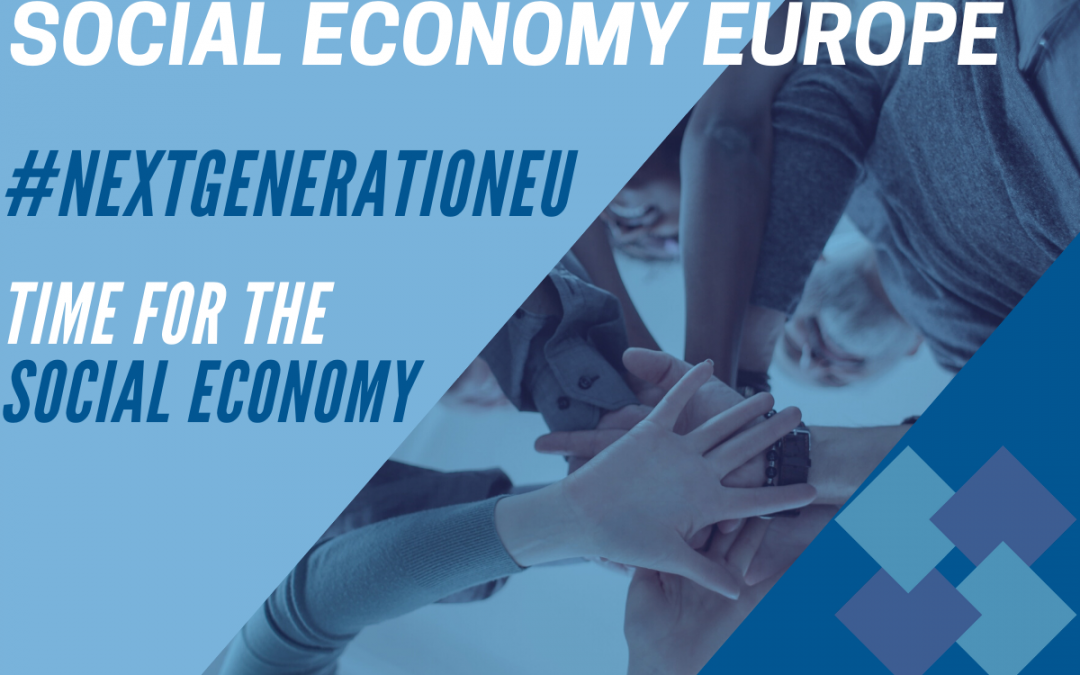We are proud of our partners Social Economy Europe working for Ireland in Brussels
This Friday 17 and Saturday 18 July, EU leaders will meet physically in Brussels to discuss the European Recovery Plan to respond to the COVID-19 crisis and a new long-term EU budget 2021-2027, in the framework of a Special European Council. The negotiations on the European Recovery Plan and the long-term EU budget constitute a decisive moment for the European Union and for our collective future.
Citizens, enterprises, and civil society organisations are suffering from the consequences of this crisis. As the Summer Economic Forecast 2020 shows, Europe is in the middle of a deep recession that is widening the economic and social divergences among Member States and EU regions, which negatively affects to the functioning of our Single Market and jeopardises the cohesion of our Union. Urgent action is needed, to support citizens, employees and all enterprises and organisations, including the 2.8 million social economy enterprises and organisation, to overcome the crisis, and also to face the transformations which our societies and economies are “confronted” with: the green transition, which is a must in order to fight climate change and the risks associated to this phenomenon, and digitalisation. We need to do all this while fighting inequalities that hamper the cohesion, stability, and prosperity of our Union, and ensuring that no one is left behind.
Social Economy Europe (SEE) welcomes the Commission’s proposal of an ambitious Recovery Plan, the Next Generation EU, and calls for a strengthened EU budget that doesn’t undermine cohesion policy and specifically the European Social Fund, as a key instrument for social convergence, inclusion and quality jobs creation through social economy enterprises and organisations.
SEE is satisfied with the fact that the Next Generation EU recognises -in its chapter on a fair and inclusive recovery- the capacity of the social economy to create quality jobs for all through collective entrepreneurship: “a strong social economy can offer unique opportunities to help most vulnerable to return to the labour market”, also in line with the recently presented European Skills Agenda for sustainable competitiveness, social fairness and resilience that sates: this action will complement the Commission’s upcoming Action Plan for the Social Economy, which will inter alia promote entrepreneurial opportunities yielded by the social economy, such as helping local communities, striking local green deals and activating vulnerable groups.
Furthermore, the Commission is recognising the strategic potential of social economy entrepreneurship for the reindustrialisation of Europe, by identifying the social economy as one of the fourteen industrial ecosystems for the recovery.

In view of this Friday and Saturday Special European Council, Social Economy Europe calls on EU leaders to overcome the differences and demonstrate a long-term vision to reach -as soon as possible- an ambitious agreement on the Recovery Plan and on the EU budget.
SEE calls on Member States to include the social economy in their National Reform Programmes, as a tool to boost entrepreneurship in all economic sectors, reindustrialisation, quality jobs creation for all (including for the most vulnerable), to strengthen their welfare systems and to accelerate the green transition and a fair digital transition.
SEE engages itself to keep cooperating with its members, European Institutions and Member States to keep mobilising the potential of the social economy to shape a better future of Europe, including by ensuring an active participation of social economy actors in the Conference on the Future of Europe, and to maximise the impact of EU policies, programmes and funds.
This is a moment of truth for Europe, a moment to join efforts to achieve a common objective: a recovery that leaves no one behind and a more resilient, sustainable, participative, and fair EU economy.


